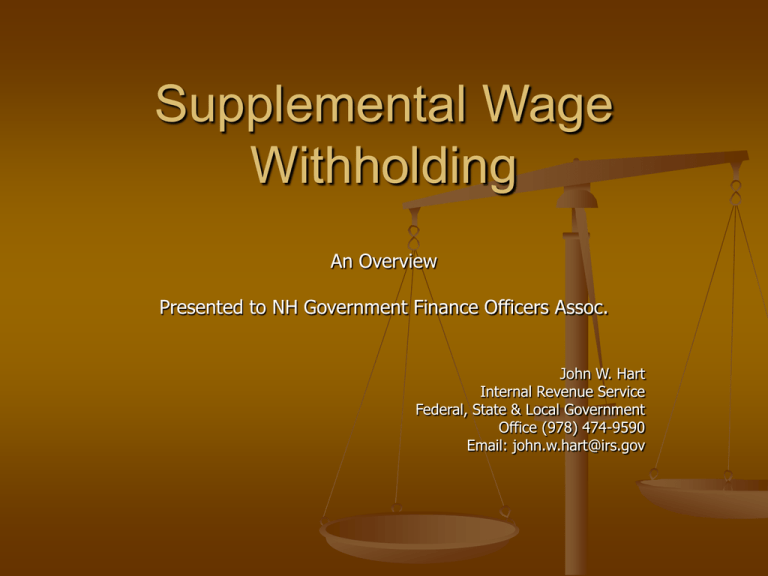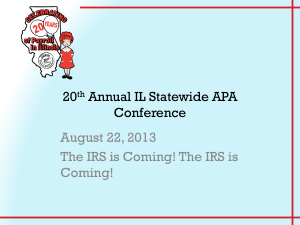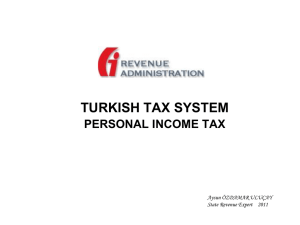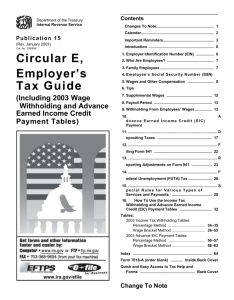Supplemental Wage Withholding
advertisement

Supplemental Wage Withholding An Overview Presented to NH Government Finance Officers Assoc. John W. Hart Internal Revenue Service Federal, State & Local Government Office (978) 474-9590 Email: john.w.hart@irs.gov What are supplemental Wages? Employee wages consist of both regular and supplemental wages. Regular wages include compensation paid at a regular hourly, daily or similar predetermine and fixed amount. Wages that vary from pay period are supplemental wages; although employers may treat reported tips and overtime pay as regular wages. Examples of Supplemental Wages Bonuses Commissions Back wages Tips (can be treated as regular wages) Overtime pay (can be treated as regular wages) Differential wage payments Noncash fringe benefits Amounts includable in gross income under IRC 409A Imputed income amounts for health insurance coverage for nondependents Sick pay paid by a third party agent of the employer Income recognized on the exercise of a nonstautory stock option Nonqualified deferred compensation or wages deferred under a retirement plan pursuant to a salary reduction agreement Wages paid under reimbursement or other expense allowance arrangements that are made under a non accountable plan Supplemental Withholding Methods Mandatory flat rate withholding at the rate of 35% is required when supplemental and regular wages exceed $1,000,000 annually Optional withholding at a 25% rate is allowable when regular and supplemental wages total less than or equal $1,000,000 annually and the employer has paid regular wages to the employee in the current or immediately preceding year Aggregate withholding is permitted in all scenarios when regular and supplemental wages total less than or equal $1,000,000 annually Payments Made by Agents Payments made by agents of the employers must be considered in determining the applicability of mandatory withholding. An optional de minimis exception is allowed for both employers and agents when an agent making wage payments, including regular and supplemental wages of less than $100,000 to an individual in a calendar year. Additional Guidance Revenue Ruling 2008-29 provides guidance with respect to income tax withholding in nine different situations involving the payment of supplemental wages. Regulation 31.3402(g)-1 sets out all the rules on income tax withholding involving the payment of supplemental wages.











